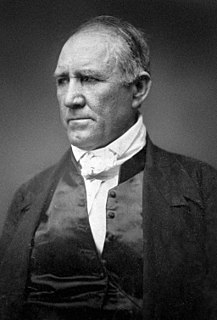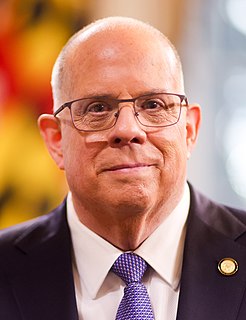A Quote by Walter E. Williams
I learned that you have to evaluate the effects of public policy as opposed to intentions.
Quote Topics
Related Quotes
I have ever been opposed to banks, - opposed to internal improvements by the general government, - opposed to distribution of public lands among the states, - opposed to taking the power from the hands of the people, - opposed to special monopolies, - opposed to a protective tariff, - opposed to a latitudinal construction of the constitution, - opposed to slavery agitation and disunion. This is my democracy. Point to a single act of my public career not in keeping with these principles.
If your intentions are already bad, and then you still make giant mistakes, it seems like things just get worse. I get little joy seeing this, because what I don't see is the public saying, "Wow, those guys are really bad, maybe we should re-evaluate everything." I don't see that response with the scandals, I don't see it with the indictments, I don't see it after Katrina, I don't see the public going, "Wow, let's really re-examine the entire direction this country is going."
Policy is formed by preconceptions, by long implanted biases. When information is relayed to policy-makers, they respond in terms of what is already inside their heads and consequently make policy less to fit the facts than to fit the notions and intentions formed out of the mental baggage that has accumulated in their minds since childhood.
In 1977, when I started my first job at the Federal Reserve Board as a staff economist in the Division of International Finance, it was an article of faith in central banking that secrecy about monetary policy decisions was the best policy: Central banks, as a rule, did not discuss these decisions, let alone their future policy intentions.
Companies like Enron have learned that small investments in endowing chairs, sponsoring research programs or hiring moonlighting professors can return big payoffs in generating books, reports, articles, testimony and other materials to push for and rationalize public policy positions that damage the public interest but benefit corporate bottomlines.
But, that’s the whole point of corporatization - to try to remove the public from making decisions over their own fate, to limit the public arena, to control opinion, to make sure that the fundamental decisions that determine how the world is going to be run - which includes production, commerce, distribution, thought, social policy, foreign policy, everything - are not in the hands of the public, but rather in the hands of highly concentrated private power. In effect, tyranny unaccountable to the public.



































